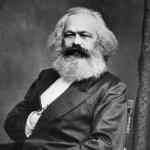Nothing elicits a surge in my skeptic meter like the term world-renowned when used in the medical realm. Especially since it is typically self-described by those selling something, routinely an unnecessary product or procedure.
Medicine
Like a coffee stain on a new carpet, Karl Marx stubbornly refuses to go away.
When it comes to seeking medical care, my focus is always on: Who is the best person for the job (replete with mounting evidence of good outcomes)? Which hospital is most familiar with the diagnosis at hand?
Where is the best state to practice medicine?
For most of us, the word “doctor” in the health care setting tends to conjure up a person who completed college, innumerable pre-med requirements, medical school, internship, residency and possibly specialty fellowship (sometimes more than one).
Recently, I published an article More Bad News for Single Payer Health System detailing the reasons for a disastrous report recently generat
When people hear of Miss America or Miss USA and the like, they tend to conflate the organizations and dismiss them as “beauty pageants” and whatever that must mean.
With information —bad, good and worse— overload from all media forms at all hours of the day and night, it is no surprise that public confidence in the medical realm is precipitously plummeting.
Since I am a huge proponent of laughter often being good medicine, I didn’t have to look very far to find funny movie scenes that also delivered meaningful medical lessons.
Limiting the number of options became the challenge!
We have entered dangerous times in my beloved medical profession. Non-doctor health professionals, backed by powerful lobbies, are increasingly interested in the easing of certain practice restrictions.












